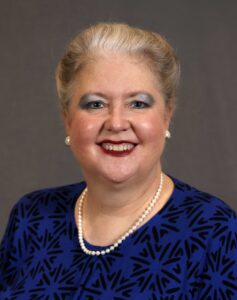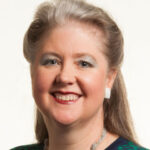 In late November, Carol Langford, MD, MHS, assumed the role of 88th president of the ACR. She looks forward to continuing the ACR’s focus on its mission and fulfilling the goals of its strong strategic plan.
In late November, Carol Langford, MD, MHS, assumed the role of 88th president of the ACR. She looks forward to continuing the ACR’s focus on its mission and fulfilling the goals of its strong strategic plan.
Dr. Langford received her medical degree at the University of California, Los Angeles, in 1987, then did her internship and residency in internal medicine at the University of Michigan, Ann Arbor, from 1987 to 1990. She followed those accomplishments by becoming a fellow in rheumatology at Duke University, Durham, N.C., and earning a master’s degree in health sciences. In 1994, she joined the National Institutes of Health, National Institute of Allergy and Infectious Diseases (NIAID), as a senior investigator. After a decade at NIAID, she moved to Cleveland Clinic and currently holds the Harold C. Schott Endowed Chair in Rheumatic and Immunologic Diseases, is the director of the Center for Vasculitis Care and Research, and professor of medicine at Cleveland Clinic Lerner College of Medicine of Case Western Reserve University School of Medicine.
Throughout her career, Dr. Langford has focused on patient care, education and research in vasculitis.
The Rheumatologist spoke with Dr. Langford about the value of the ACR to rheumatologists and to patients, and how she hopes to contribute to that value as the ACR’s newest president.
The Rheumatologist (TR): What drove you to begin volunteering for the ACR in the first place?

Dr. Langford
Dr. Langford: At my very first annual meeting of the ACR, I saw how the ACR brought the whole rheumatology community together, and I knew right away that it was an organization that I wanted to be a part of. My first volunteer activity was in 1995 doing abstract review, after which I gradually got involved in committee work.
TR: Which committees did you participate in?
Dr. Langford: A substantial amount of my volunteer activity was focused in the education branches of the ACR. I served as clinical abstract chair for the annual meeting (now ACR Convergence) and led the Continuous Professional Development Subcommittee in developing Maintenance of Certification activities and advocating for rheumatologists in the ACR’s interactions with the American Board of Internal Medicine (ABIM). I have been the chair of the Committee on Education, served on the ACR Board of Directors, and since joining the Executive Committee, I have gained experience in the Committee on Finance as ACR Treasurer and [as a member of] the Membership and Awards Committee.


